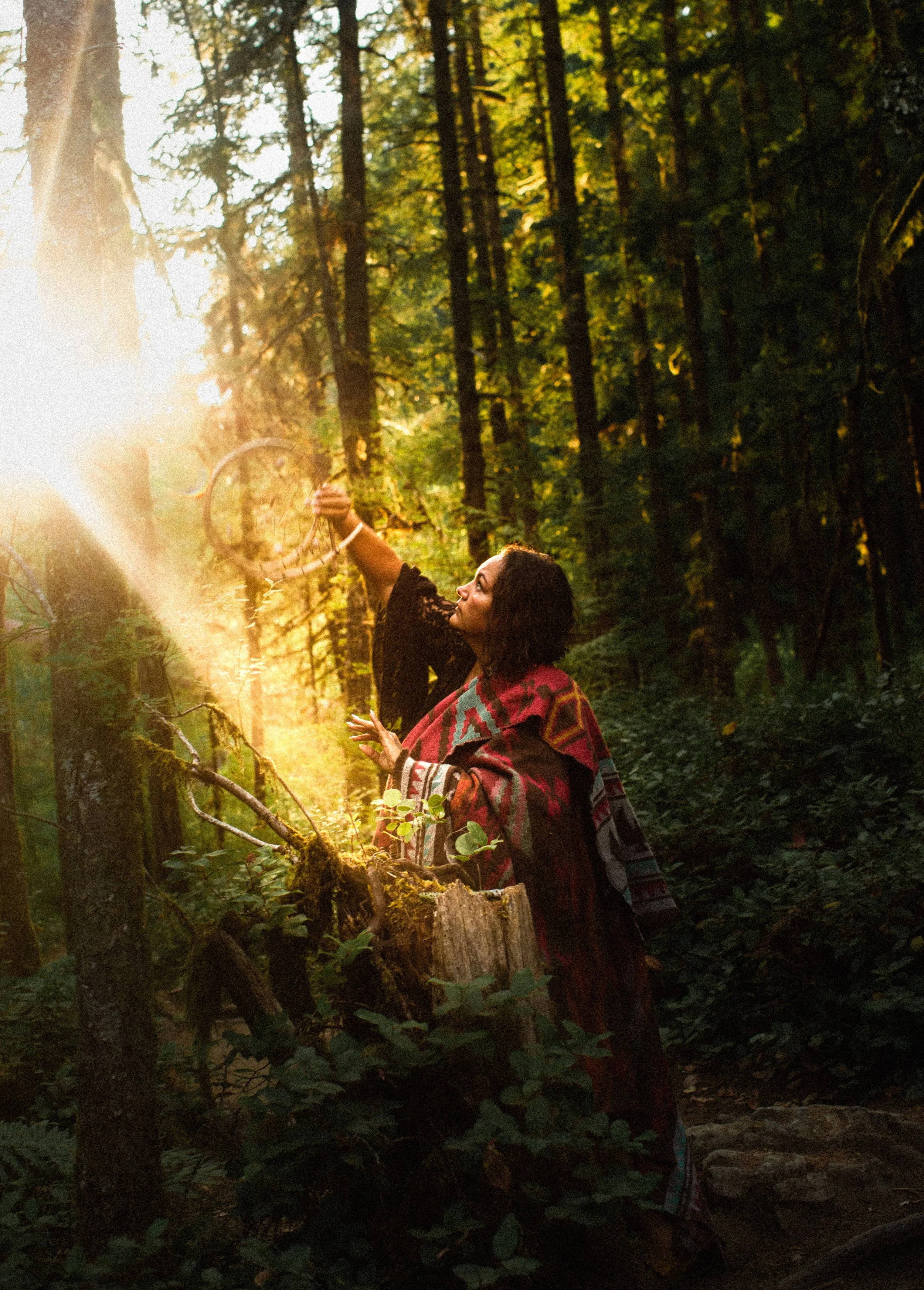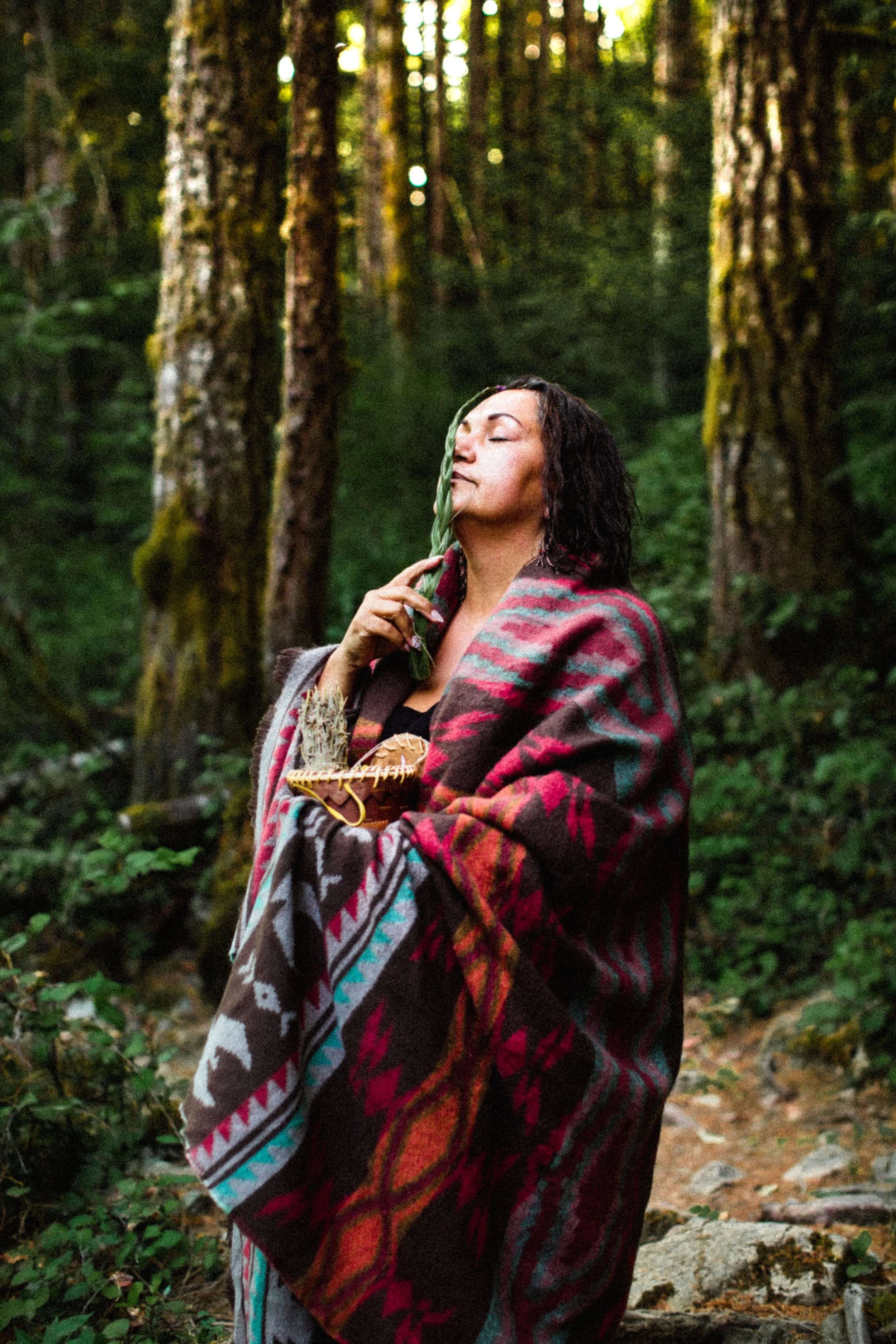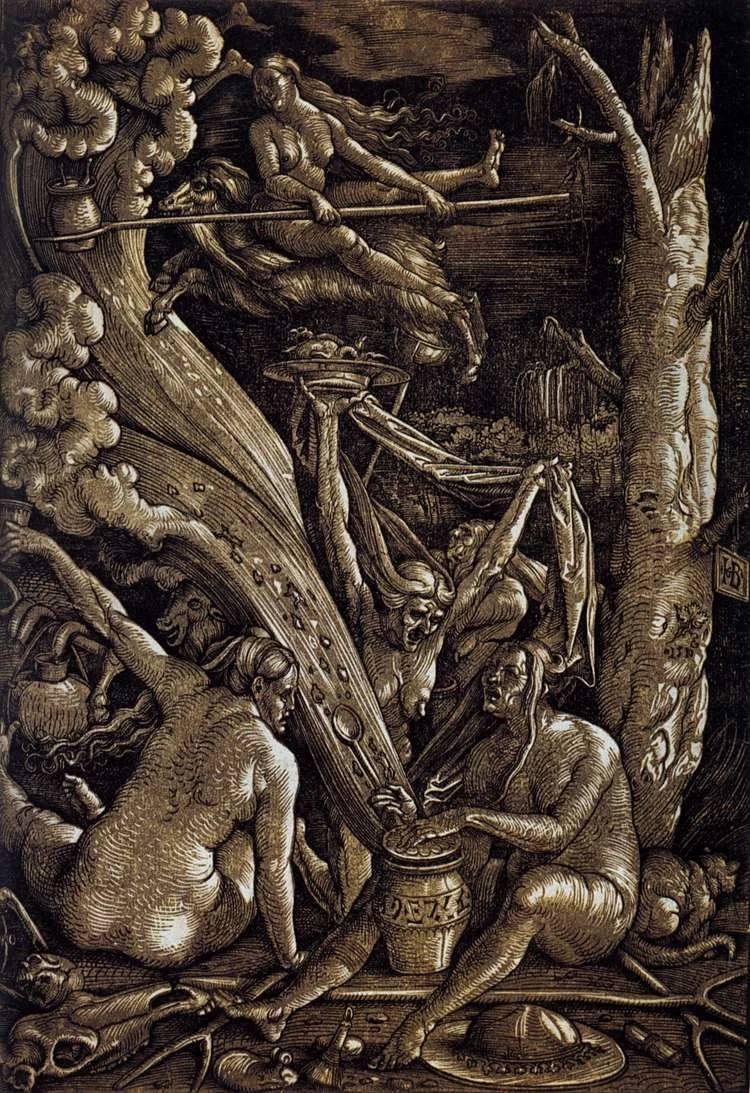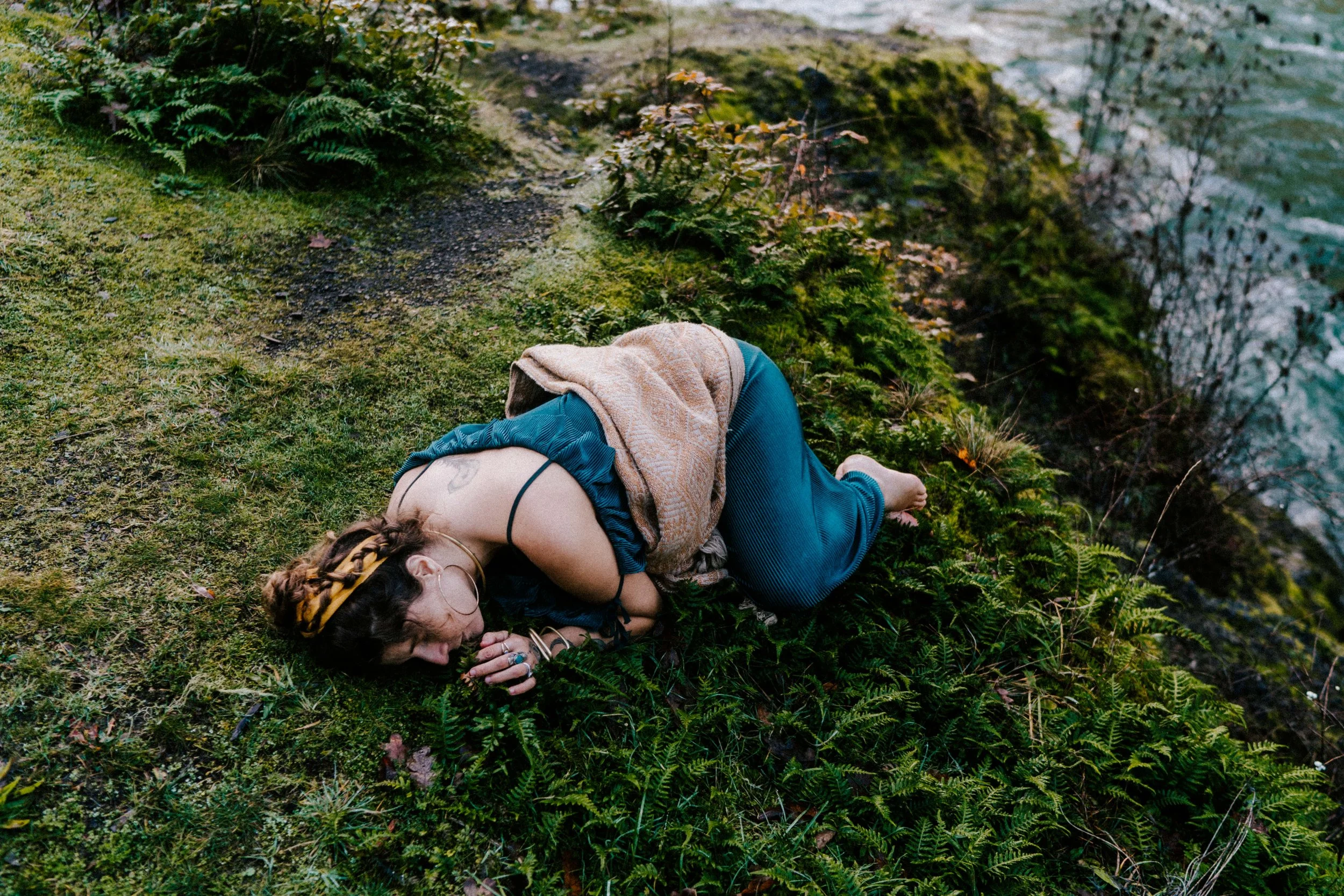Eco-Somatics and the Body of your Work
Eco-Somatics is a growing field of embodied research and holistic practice that combines principles from depth ecology and somatics to enhance our connection and felt sense of our bodies, the earth and one another. It is a body-centered and nature-based healing approach that many have begun to use to build resilience, restore vitality and nurture a sense of inter-being. By experiencing our interconnectedness of all living beings we decompose conditioning from patriarchal, colonial and capitalist culture. The felt sense of our bodies while in relationship with the earth is a portal for healing and transformation- not just for ourselves, but for the culture we live within.
“We can sense the world around us only because we are entirely a part of this world, because - by virtue of our own carnal density and dynamism - we are wholly embedded in the depths of the earthly sensuous. We can feel the tangible textures, sounds and shapes of the biosphere because we are tangible, resonant, audible shapes in our own right. We are born of these very waters, this very air, this loamy soil, this sunlight. Nourished and sustained by the substance of the breathing earth, we are flesh of its flesh. We are neither pure spirits nor pure minds, but are sensitive and sentient bodies able to be seen, heard, tasted, touched by all the beings around us.” - David Abram, Becoming Animal
Eco-Somatics is a growing field of embodied research and holistic practice that combines principles from depth ecology and somatics to enhance our connection and felt sense of our bodies, the earth and one another. It is a body-centered and nature-based healing approach that many have begun to use to build resilience, restore vitality and nurture a sense of inter-being. By experiencing our interconnectedness of all living beings we decompose conditioning from patriarchal, colonial and capitalist culture. The felt sense of our bodies while in relationship with the earth is a portal for healing and transformation- not just for ourselves, but for the culture we live within.
Way of Belonging offer some great key concepts and practices of Eco-Somatics:
Embodied Ecology: Eco-Somatics encourages us to develop a deep, experiential relationship with nature. It emphasizes the importance of immersing ourselves in natural environments and engaging all our senses to connect with the earth, plants, animals, and the elements.
Sensory Awareness: This practice involves paying attention to our senses and tuning in to the sensory information that surrounds us. By becoming more aware of our physical sensations, we can deepen our connection with nature and improve our overall well-being.
Movement Practices: Eco-Somatics incorporates movement practices to help us reconnect with our bodies and the natural world. This can include activities like yoga, tai chi, dance, primal play, or any form of mindful movement that helps us experience a sense of embodiment and connection.
Mindfulness & Presence: Being fully present and attentive to the present moment is a key aspect of Eco-Somatics. By cultivating mindfulness and presence, we can develop a greater appreciation for the beauty and intricacy of the natural world, as well as deepen our understanding of our own bodies.
Ecological Consciousness: Eco-Somatics promotes an ecological consciousness, which means recognizing the interdependence of all living beings and the impact of our actions on the environment. It encourages sustainable practices and a sense of responsibility towards the natural world.
Although eco-somatics practices may seem new age, it is important to recognize that this is ancient and indigenous wisdom. As white bodied settlers, we are often seeking to repair connection with nature in a way that enhances our mind-body-earth-spirit well-being but also repairs colonial wounds that live within our bodies. Indigenous people have always seen the body as a microcosm of the earth. Colonial people have inflicted a culture on indigenous peoples that separate body from earth. The Cartesian mind/body split was an essential cultural construct of the industrial revolution and subsequent colonizing movements.
I speak to this wider context because I imagine that most reading this cary this memory in the territory of their body. This territory might look and feel something like a clear cut forest. Have you ever walked through a clear cut? It is very difficult to stay in your body. Eco-somatics offers us a sense of possibility in healing this disconnection from our bodies (mind/body split) due to the legacy of our ancestry. By cultivating our innate capacity to be present in the moment, the instinctual impulse of our inner nature comes alive.
Eco-somatics in your sacred offerings is also a reparative process. The body of your work, just like your physical body, exists within a web of ecological kinship that becomes more resilient through our embodied experience within wider seasons and cycles of change. By intentionally engaging your somatic senses in your work while connecting to the ecology of your place, you invite a wider awareness to take up space in the landscape of your business.
Incorporating eco-somatics in your business and sacred offerings will:
Nurture an embodied sense of purpose and vitality
Expand your felt sense of impact within a wider ecological web of relationships.
Restore your ecological identity and sense of relational responsibility
Heal ancestral wounds of separation, isolation, guilt, shame and scarcity
Repair disconnection from community support and care
Engage your senses within the wider ecology and within your body of work
Transform content into a living landscape of the body of your work
Call back instinctive ways of being as you move into relationship with clients
Support nervous system regulation and re-patterning as you expand your work
Nurture self trust as you take greater risks in creating and sharing your sacred offerings
Deepen your sense of belonging, reverence and responsibility to place (Land/Waters).
Do you want your work to feel fully alive?
Of course you do! But considering the culture we live in, its totally normal to feel stuck. What I want for you is to sensually open and receptive the greater body of earth.
“Ecosomatics is all about coming back to life and supports the cultivation of an ancient (embodied) way of knowing/being that dissolves our sense of separation and isolation. It acknowledges the indivisibility of self from nature, and gives voice to the elemental interrelationships that make up the fabric of our co-existence.” - Way of Belonging
If you feel called to this work, please reach out to explore 1-1 mentorship, group containers, and other resources available to you on the journey of re-weaving a more beautiful world through our bodies love for the earth.
A brief sociological history of embodiment
Embodiment is a popular word. It's over used, even I find myself cringing when I use it, which I do (A LOT).
I typically walk away from things that become popular but in this case, I feel more inclined to dig deeper into the discourse.
Discourse analysis is an approach of examining bodies of knowledge and the power they have to influence culture and social behaviour. I was trained in discourse analysis in graduate school and am now more fully incorporating into my work.
Here is an important quote that begins our analysis: "One of the preconditions for capitalist development was the process that Michael Foucault defined as the disciplining of the body." - Silvia Federici, The Caliban and the Witch.
image: Witches Sabbath. Hans Baldung Grien, 1510.
Embodiment is a popular word. It's over used, even I find myself cringing when I use it, which I do (A LOT).
I typically walk away from things that become popular but in this case, I feel more inclined to dig deeper into the discourse.
Discourse analysis is an approach of examining bodies of knowledge and the power they have to influence culture and social behaviour. I was trained in discourse analysis in graduate school and am now more fully incorporating into my work.
Here is an important quote that begins our analysis: "One of the preconditions for capitalist development was the process that Michael Foucault defined as the disciplining of the body." - Silvia Federici, The Caliban and the Witch.
Now Michael Foucault essentially created critical discourse analysis and I was always drawn to Michael Foucault's writing in university. I understand why more fully now as he was one of few that positioned the body within a wider social, cultural, political and economic context. This was important for me at the time because I knew that I was very disconnected and estranged from my body but really didn't understand why.
Strange, how I only recognize now-after 5 years of healing my relationship to my body that it was a French philosopher who helped initiate me into the work that I am doing now, nearly a decade before I came across "embodiment" discourse.
Back to the subject...what Foucault and Federici brought light to decades before the popularization of 'embodiment' was the beliefs, ideas, and practices that transformed innate bodily powers from receiving and expressing information from the unseen and the earth, from the divine and from the ancestors, into the powers of labour that could be extracted for capitalist accumulation.
Separating body and nature so that the machine of capitalism could instruct the body in every facet of life, was an essential part of the process. "Corporeal reality" became less about communion, connection, and confluence with the divine, the elements, ancestors, ect. but about submission to the demands of capitalist work conditions.
This is as much of our ancestral inheritance as the resistance and rebellion that women and peasants expressed in response to the violent disciplining of their bodies (witch burnings, hunts, and trails were apart of this).
Even as I write this, I recognize that it is very academic and hard to relate to. And yet, the surface level dialogue about embodiment in the mainstream, is also become un-relatable. In my own work, as a thinker and artist and in the work that I do with clients, I want to go into the depths of how we have been conditioned to submit and to disavow our instinctual, intuitive, and sacred nature.
Those who become fixated on embodiment are as Josh Schrei says in his recent podcast (The Emerald Podcast), are seeing and feeling things that are wanting, needing to be expressed in order to wake culture up.
So if the way we embody our somatic perception is de-animated through the capitalist, colonial mechanisms we have inherited, what is our embodiment work really doing?
Burn out, deconstructed
Burn out in our individual bodies and nervous systems are connected to what is happening on the earth.






